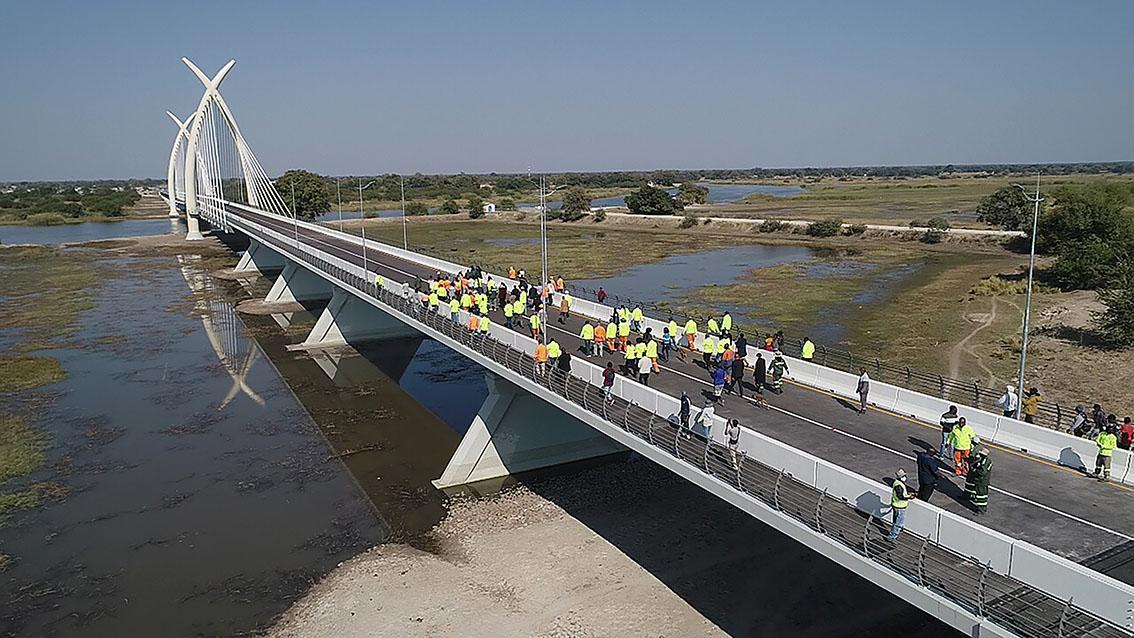Africa-Press – Botswana. Addressing health challenges requires a one health approach that sustainably balances and enhances the wellbeing of people, animals and ecosystem.
North West District Council, deputy council secretary- primary health services, Dr Sandra Maripe-Ebutswe therefore underscoring the need to strengthen multi-sectoral collaboration and surveillance systems towards addressing spread of diseases and other health threats.
She was presenting during a meeting which attracted stakeholders including scientists and researchers who were sharing their findings on topics about the future of the delta in Maun on Wednesday.
Dr Maripe-Ebutswe said the district was known to be prone to seasonal disease outbreaks such as Malaria and Diarrhoea particularly during rainy and flooding period resulting in loss of lives.
The area’s high rainfall and conducive environment for mosquito breeding, she said contributed to prevalence of Malaria adding that water contamination and poor sanitation practices were significant risks factors for diarrhoea outbreaks.
Last year August, Dr Maripe-Ebutswe said they registered over 3 674 diarrhoea cases and 36 babies lost their lives.
“This year, we still experience the outbreak and since the annual water inflows have just arrived, we are expecting the cases to rise and in terms of mortalities, we are always second contributing district among all districts, normally after Ghanzi if not Okavango districts,” she added.
Dr Maripe-Ebutswe also said Botswana had a vision to eradicate malaria by 2025 and unfortunately failed. She said they had not given up as they continued to come up with interventions to mitigate the situation.
The country, she said was chosen amongst the SADC countries to participate in a regional effort to eliminate malaria.
This year, she said they recorded close to 300 cases due to better rainfall experienced as compared to last year where they registered less cases due to the dry season.
Unfortunately, she said they lost three young lives. Dr Maripe-Ebutswe said for the country to eliminate Malaria, Indoor Residual Spraying (IRS) remained primary core intervention adding that the district has a target of 85 per cent but they could not achieve it due to various reasons.
This year, she said they managed to achieve 58 per cent because some communities were hesitant while some had concerns about IRS saying it caused health issues. “This negatively affect our efforts to effectively eliminate malaria and it is unfortunate as some used the nets distributed for fishing purposes”.
Another intervention Dr Maripe-Ebustwe mentioned was Malaria awards where they recognise and appreciate the village taking the lead in the fight against Malaria in terms of IRS participation.
She also pointed out that the district has recorded a number of chronic kidney failure cases noting that there were some perceptions that the rising cases was caused by water supplied for consumption and hoped researchers could come on board to establish what could be the real cause.
Scientifically, she said kidney failure can be caused by hypertension, diabetes, heart disease, abusing salt and not drinking enough water among others.
However, on some achievements made so far with regard to other health issues, the deputy council secretary told the meeting that the district had made remarkable progress to 95-95-95 UNAIDS strategy targets for testing and treatment.
The strategy aims to have 95 per cent of people living with HIV know their status, 95 of those diagnosed on treatment and 95 per cent of those on treatment with suppressed viral loads by 2025.
Furthermore, Dr Maripe-Ebutswe revealed that sexual reproductive health was a potential public health concern because it affected the socio-economic welfare of countries, societies, teenagers and families at large.
In the district, she said the situation was exacerbated by parents working in the delta while children were left behind, transactional sex, peer pressure, economic status and drug/substance abuse among others.
Despite that, she said efforts were being made to provide integrated, holistic and sustainable preventative, curative, rehabilitation quality health services to the community but the challenge was shortage of resources and skilled manpower, doctors and specialists.
For More News And Analysis About Botswana Follow Africa-Press






